
Asuka-dera: A Sacred Journey Through Time
Explore the ancient Asuka-dera, home to Japan's oldest Buddha statue and a tranquil escape into Japan's rich Buddhist heritage.
Nestled in the serene landscape of Asuka, Nara, Asuka-dera stands as a testament to Japan's rich Buddhist heritage. This ancient temple, known for housing the oldest Buddha statue in Japan, invites tourists to explore its tranquil grounds and immerse themselves in the spiritual ambiance. With its stunning architecture and historical significance, Asuka-dera is a must-visit for those seeking a deeper understanding of Japanese culture and history.
A brief summary to Asuka-dera
- 682 Asuka, Asuka, Asuka, Takaichi District, Nara, 634-0103, JP
- +81744-54-2126
- Visit website
- Monday 9 am-5:30 pm
- Tuesday 9 am-5:30 pm
- Wednesday 9 am-5:30 pm
- Thursday 9 am-5:30 pm
- Friday 9 am-5:30 pm
- Saturday 9 am-5:30 pm
- Sunday 9 am-5:30 pm
Local tips
- Visit early in the morning to enjoy a peaceful experience before the crowds arrive.
- Take time to explore the surrounding gardens and ancient trees for a full experience of the serene atmosphere.
- Don't miss the chance to learn about the temple's history from the informative signs displayed around the site.
Getting There
-
Car
From Osaka, take the Kinki Expressway (Route 25) towards Nara. Continue on Route 25 for approximately 40 km until you reach the Asuka area. Take the exit towards Asuka and follow the signs to Asuka-dera. The temple is located at 682 Asuka, Takaichi District, Nara 634-0103. Parking is available near the temple, but be mindful of parking fees, which can vary.
-
Train and Bus
From Osaka Station, take the JR Yamatoji Line to Tenri Station. Transfer to the Kintetsu Tenri Line and travel to Asuka Station. From Asuka Station, take the Asuka Village Community Bus (Asuka Kanko Gyoumu) towards Asuka-dera. The bus ride takes about 15 minutes, and the fare is approximately 300 yen. Asuka-dera is a short walk from the bus stop.
-
Public Transportation (Direct Train)
You can also take the Kintetsu Nara Line from Nara Station directly to Asuka Station. This journey takes around 30 minutes. Upon arrival at Asuka Station, follow the same instructions for the community bus to reach Asuka-dera.
-
Taxi
If you prefer a more direct route, you can take a taxi from either Tenri Station or Asuka Station directly to Asuka-dera. Expect a fare of around 1,500 to 2,000 yen for the journey, depending on traffic and exact pickup location.
Discover more about Asuka-dera
Iconic landmarks you can’t miss
3-chōme-1-22 Imaichō
4.4 km
Explore the historical beauty of 3-chōme-1-22 Imaichō in Kashihara, Nara, where traditional architecture meets vibrant local culture.
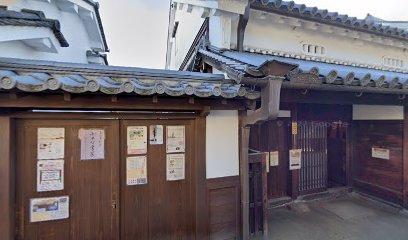
Kasuga Shrine
4.5 km
Experience the tranquility of Kasuga Shrine in Kashihara, a serene Shinto shrine surrounded by nature, steeped in history and spirituality.
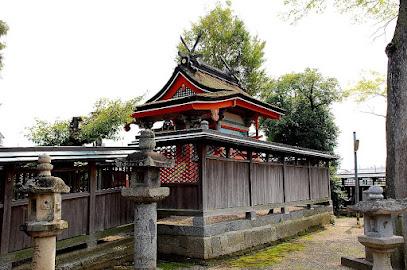
Uda-Matsuyama Castle Ruins
10.8 km
Explore Uda-Matsuyama Castle Ruins, a historic site in Nara offering stunning views, serene nature, and a glimpse into Japan's rich history.
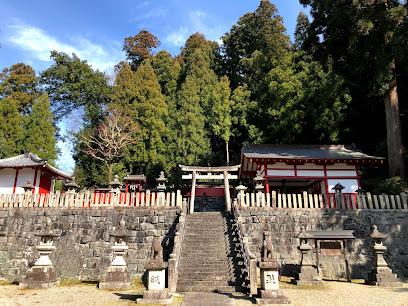
Shukyohojinyakushiji
11.1 km
Experience serenity and cultural richness at Shukyohojinyakushiji Temple in Yoshino District, Nara, a must-visit for every traveler seeking spiritual connection.
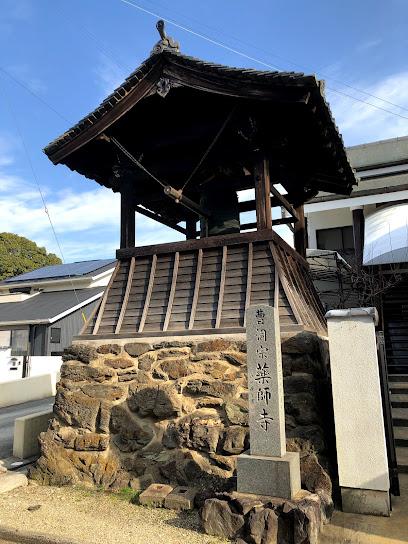
Horyu-ji
17.1 km
Discover the timeless beauty of Horyu-ji, a UNESCO World Heritage Site, showcasing ancient wooden architecture and rich Buddhist history in Nara, Japan.
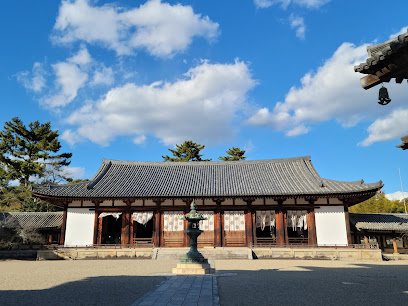
Koriyama Hachiman-Jinja Shrine
18.8 km
Explore the serene beauty of Koriyama Hachiman-Jinja Shrine, a historic Shinto shrine in Nara, Japan, offering peace, spirituality, and stunning architecture.
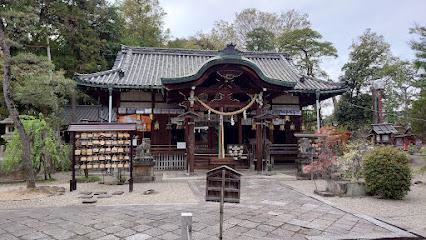
19-1 Konyamachi
19.1 km
Discover the architectural beauty and historical significance of Konyamachi in Yamatokoriyama, a gem in the heart of Nara, Japan.
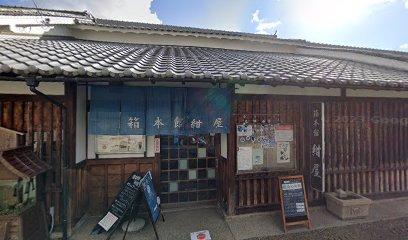
Koriyama Castle Ruins
19.6 km
Explore the enchanting Koriyama Castle Ruins in Nara, Japan – a beautiful blend of history, culture, and stunning natural scenery.
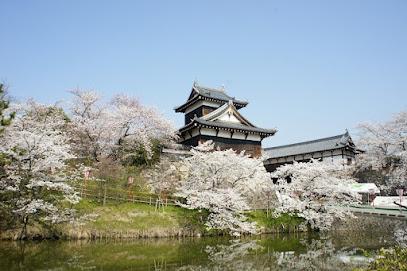
Gyokuzoin
20.1 km
Discover the tranquility of Gyokuzoin, a beautiful Buddhist temple in Nara, where spirituality and nature converge in perfect harmony.
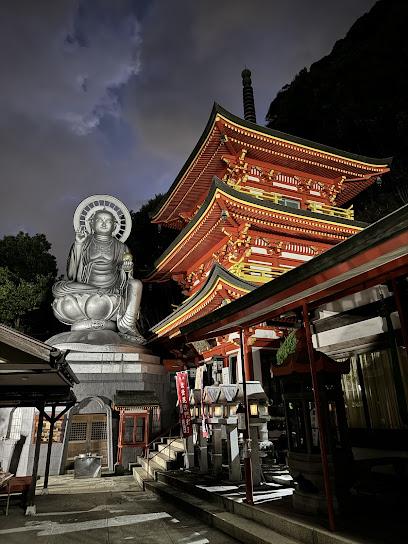
Yakushi-ji
21.4 km
Explore the historic Yakushi-ji Temple in Nara, a UNESCO World Heritage site featuring stunning architecture and a serene atmosphere.
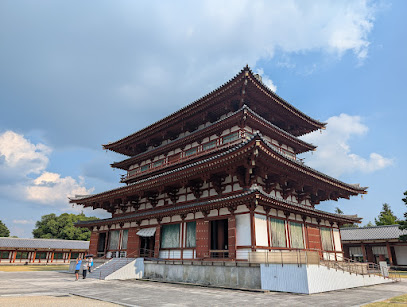
Naramachi Koshi-no-Ie (Lattice House)
21.9 km
Explore Naramachi Koshi-no-Ie in Nara: A beautifully preserved lattice house showcasing traditional Japanese architecture and the charm of Edo-era living.
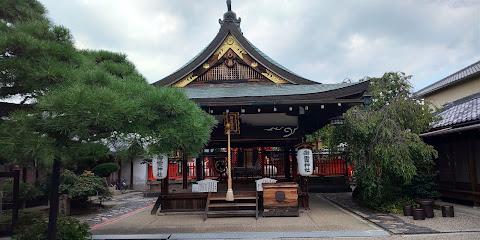
塔の茶屋
22.1 km
Experience authentic kaiseki dining at Tounochaya in Nara, where seasonal ingredients and exquisite presentation come together in harmony.
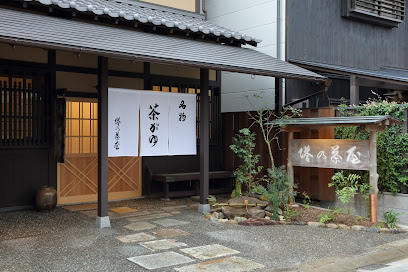
Naramachi Shiryo-kan Museum
22.1 km
Discover Nara's rich history at Naramachi Shiryo-kan Museum, where the past comes alive through engaging exhibits and artifacts.
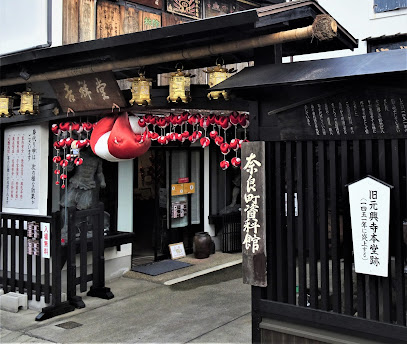
Naramachi Historic District
22.1 km
Explore Naramachi Historic District, a serene journey through Japan's Edo period with stunning architecture and rich cultural experiences.
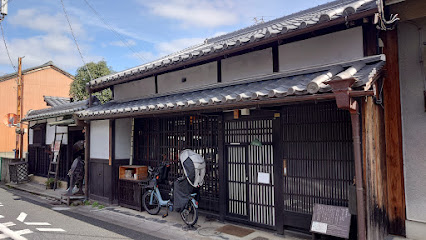
Naramachi Nigiwai-no-le
22.1 km
Discover the traditional charm and cultural heritage of Naramachi Nigiwai-no-ie, a captivating tourist attraction in historic Nara, Japan.
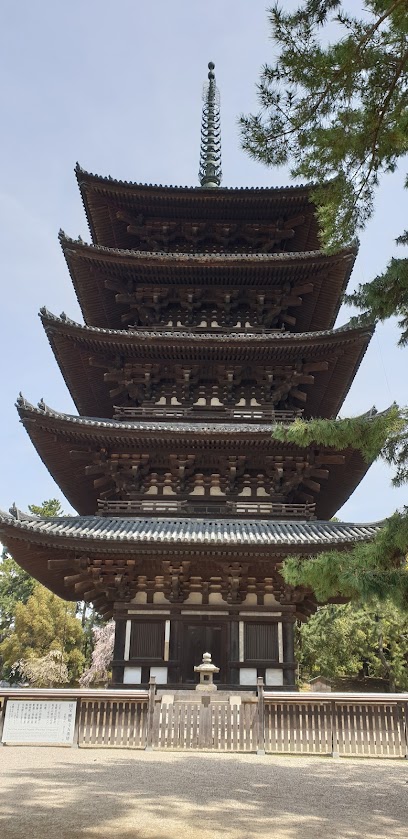
Unmissable attractions to see
Asukaike Workshop Ruins
0.2 km
Unearth the rich cultural heritage of Asukaike Workshop Ruins, where ancient craftsmanship meets serene natural beauty in Japan's Asuka region.
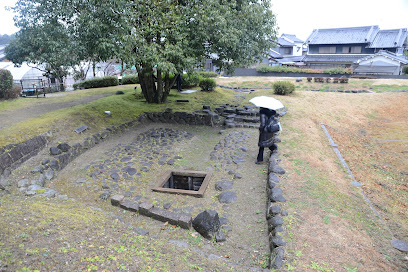
Asuka Mizuochi Ruins
0.3 km
Discover the historical treasures of Asuka Mizuochi Ruins, an ancient site that showcases Japan's rich cultural heritage and architectural brilliance.
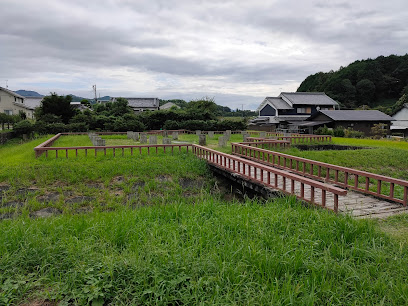
Nara Prefecture Complex of Man’yo Culture (Man’yo Museum)
0.3 km
Explore the Nara Prefecture Complex of Man'yō Culture, a fascinating local history museum dedicated to Japan's ancient Man'yō era in the heart of Asuka.
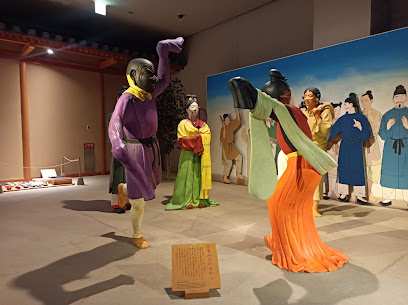
The Sakafune-ishi Stonework
0.5 km
Explore the Sakafune-ishi Stonework, an archaeological gem in Nara showcasing ancient stone artistry and the rich history of Japan.
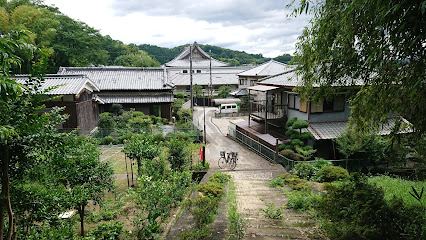
Site of Asuka Itabuki-no-miya Palace
0.6 km
Explore the Asuka Itabuki-no-miya Palace, a historical landmark that reveals Japan's ancient imperial heritage in the serene surroundings of Nara.
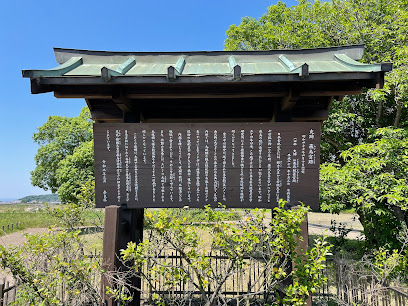
Asuka Historical Museum, Nara National Institute for Cultural Properties
0.8 km
Explore the rich cultural heritage of Japan at the Asuka Historical Museum, showcasing ancient artifacts and the fascinating history of the Asuka period.
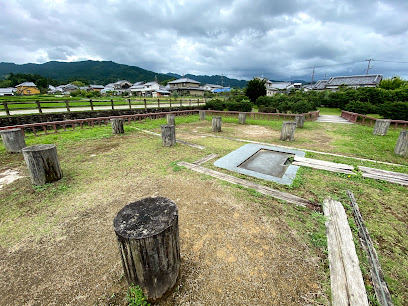
Asuka
0.8 km
Explore the ancient wonders of Asuka in Nara, where history, culture, and breathtaking landscapes converge in Japan's historic heart.
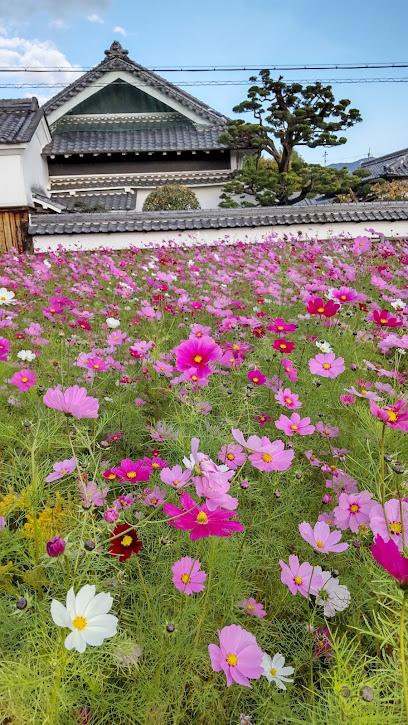
Oka-dera Niomon Gate
1.0 km
Discover tranquility at Oka-dera Niomon Gate, a serene Buddhist temple in Asuka, steeped in rich history and breathtaking natural beauty.
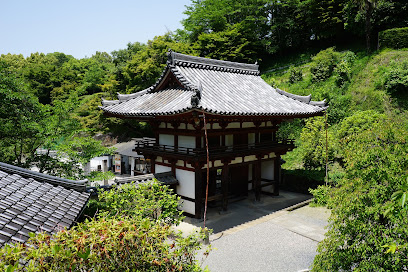
Oka-dera Daishido
1.0 km
Discover the tranquil beauty and rich heritage of Oka-dera Daishido, a historic Buddhist temple in the heart of Asuka, Nara, Japan.
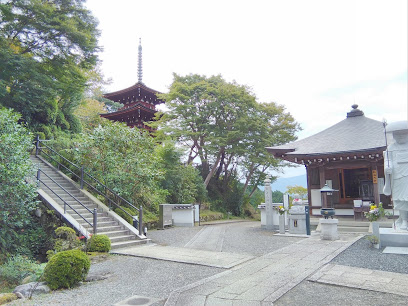
Okadera
1.1 km
Explore Okadera, a beautiful Buddhist temple in Asuka, Japan, where serenity, history, and stunning gardens await every visitor.
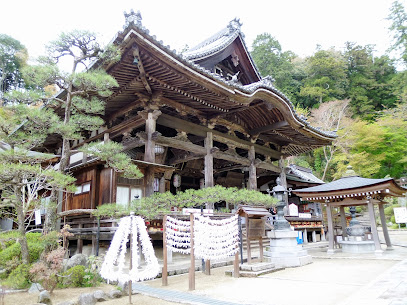
Oka-dera Hondo (Main Hall)
1.1 km
Explore Oka-dera Hondo, a tranquil Buddhist temple in Asuka, Nara, known for its stunning architecture and serene surroundings, perfect for spiritual reflection.
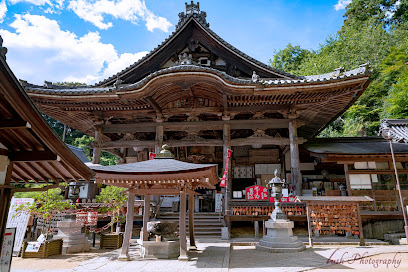
Ishibutai Area in Asuka Historical National Government Park
1.4 km
Discover the ancient wonders of the Ishibutai Area in Asuka National Park, where history and nature intertwine in a serene landscape.
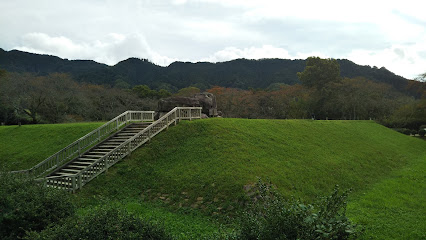
Ishibutai Tumulus
1.4 km
Discover the ancient mysteries of Ishibutai Tumulus, a historical landmark in Asuka, Japan, showcasing impressive Kofun-era burial practices and stone architecture.
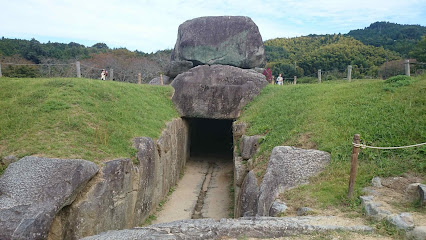
Mausoleum of Emperor Kōgen
1.6 km
Explore the Mausoleum of Emperor Kōgen in Nara, a serene historical landmark that reflects Japan's rich imperial legacy and offers a peaceful retreat for visitors.
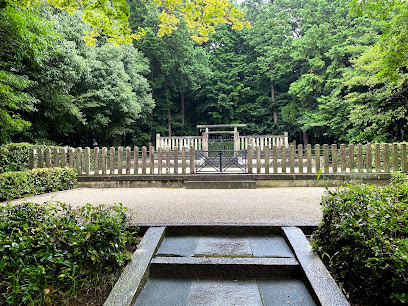
Mausoleum of Emperor Tenmu and Empress Jitō
1.6 km
Discover the tranquil beauty and historical significance of the Mausoleum of Emperor Tenmu and Empress Jitō in Japan's Asuka region.
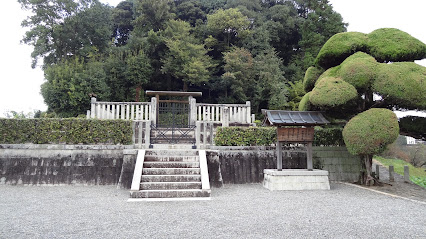
Essential places to dine
Kiyosuminosato Awa
17.4 km
Discover authentic Japanese cuisine at Kiyosuminosato Awa in Nara, where tradition meets taste in a serene setting.
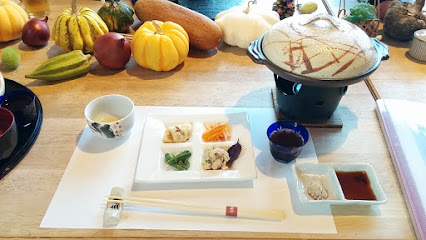
Tsukumo
22.0 km
Discover Tsukumo: An exquisite Kaiseki restaurant in Nara offering seasonal dishes that celebrate Japan's culinary traditions.
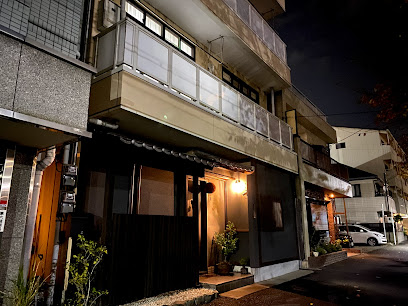
Kinatei
22.1 km
Experience the best of vegetarian dining at Kinatei in Nara, where organic ingredients meet flavorful creativity for every health-conscious traveler.

はり新
22.2 km
Discover authentic Japanese cuisine at はり新 in Nara - where tradition meets flavor in every dish.
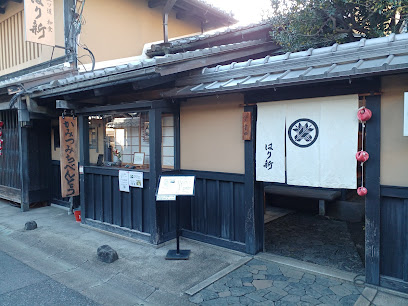
Ashibinosato
22.2 km
Discover authentic Japanese cuisine and vibrant culture at Ashibinosato in Nara – where food meets community in an unforgettable experience.
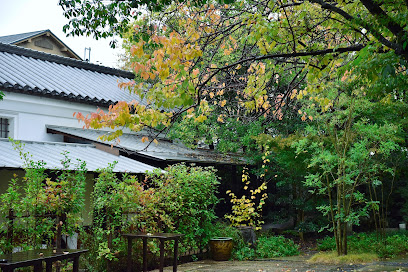
RAhOTSU
22.2 km
Discover authentic Thai flavors at RAhOTSU in Nara - a culinary gem offering exquisite dishes in a vibrant atmosphere.
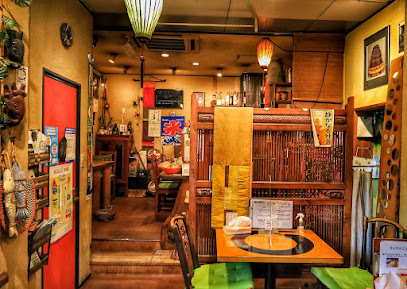
Naramachi Hiyori
22.2 km
Discover the art of Kyoto-style dining at Naramachi Hiyori—where tradition meets creativity in every delicious bite.
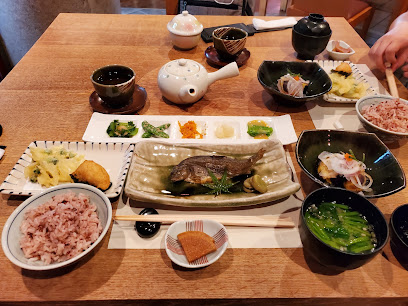
onwa
22.2 km
Experience the best of plant-based cuisine at Onwa in Nara – where every bite is crafted with love and care.
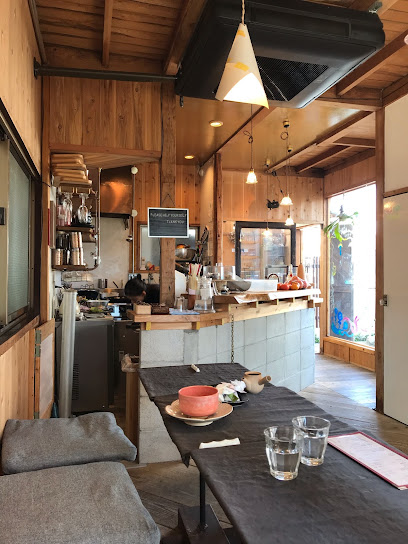
Vegan Cafe Ramuna
22.2 km
Discover the vibrant flavors of plant-based cuisine at Vegan Cafe Ramuna in Nara - a haven for health-conscious food lovers.
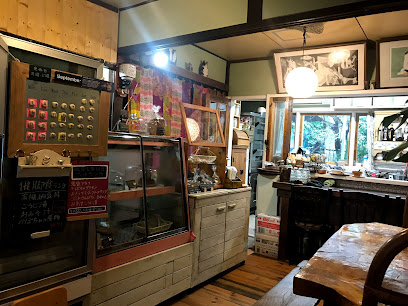
Edogawa - Naramachi
22.3 km
Experience authentic Japanese cuisine at Edogawa - Naramachi in historic Nara, featuring expertly grilled unagi and traditional delicacies.
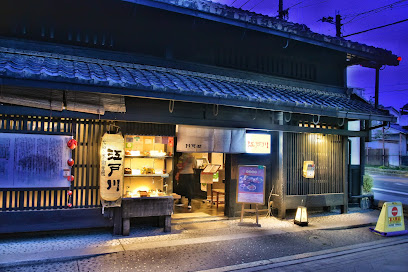
Awa Naramachi
22.3 km
Experience authentic Japanese cuisine at Awa Naramachi in Nara - where tradition meets taste.

Sankoen
22.3 km
Discover Sankoen in Nara - where traditional Japanese cuisine meets modern creativity for an unforgettable dining experience.
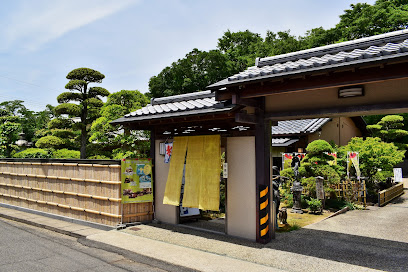
Surugamachi's Okonomiyakiya
22.4 km
Experience authentic okonomiyaki at Surugamachi's Okonomiyakiya in Nara – where tradition meets flavor at affordable prices.

Okonomiyaki Parco
22.4 km
Discover authentic Japanese flavors at Okonomiyaki Parco in Nara - where delicious okonomiyaki meets vibrant dining culture.
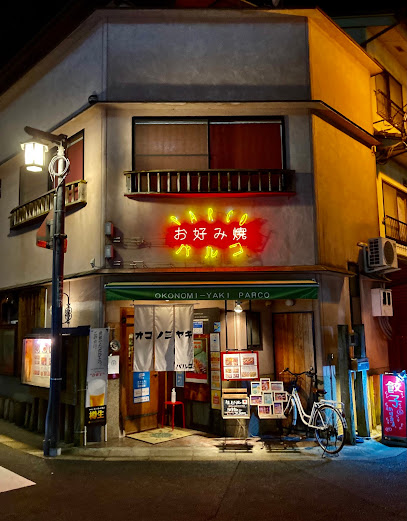
滴翠
22.4 km
Experience the essence of authentic Japanese cuisine at 滴翠 in Nara - where tradition meets taste.
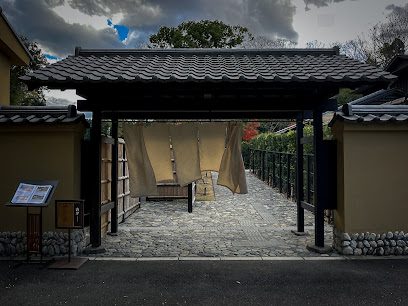
Markets, malls and hidden boutiques
Coffee Sanpo
0.8 km
Discover the tranquility of Coffee Sanpo in Asuka, where exceptional brews meet breathtaking countryside views.
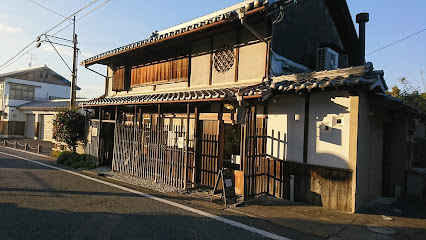
Aeon Mall Kashihara
6.1 km
Discover unparalleled shopping and dining at Aeon Mall Kashihara in Nara, Japan, where tradition meets modern retail and entertainment.

Tenri Hondori Shopping Street
13.6 km
Discover the cultural heartbeat of Tenri at Hondori Shopping Street with its vibrant shops and tantalizing street food, a must-visit for every traveler.

Secret Base JO-9, Cafe
15.2 km
Experience the serene charm of Secret Base JO-9 Café in Nara, where delicious coffee and a tranquil atmosphere await every visitor.
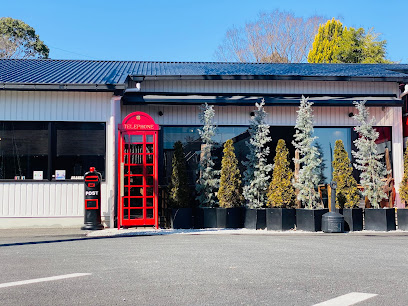
Ryohinkaikan Naraten
21.1 km
Explore Ryohinkaikan Naraten for unique kimonos, vintage finds, and sustainable shopping in the heart of Nara, Japan.
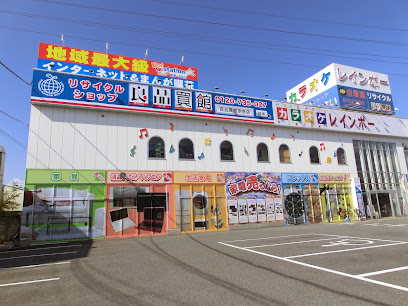
AEON TOWN Tomiominami
21.9 km
Explore AEON TOWN Tomiominami, Nara's premier shopping destination with diverse shops, dining options, and family-friendly entertainment.

奈良専門オンラインショップ「ならわし」
22.0 km
Explore ならわし, Nara's premier gift shop, for unique local crafts and souvenirs that capture the spirit of Japan's rich heritage.
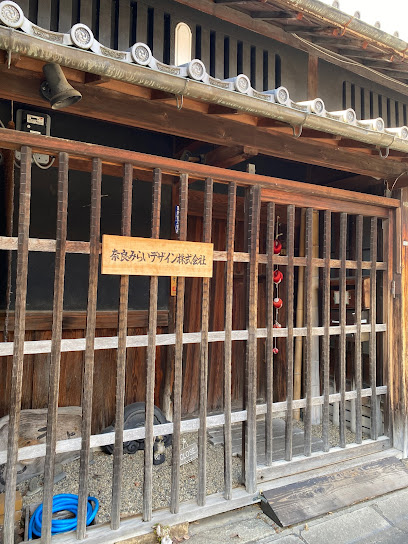
SHOP OF THE PAINTER OF NARA MACHI
22.3 km
Explore the vibrant artistry at the Shop of the Painter in Nara Machi, where tradition meets creativity in every handcrafted piece.

Shimomikado Shopping Street
22.4 km
Experience the perfect blend of tradition and modernity at Shimomikado Shopping Street, a vibrant destination in the heart of Nara, Japan.
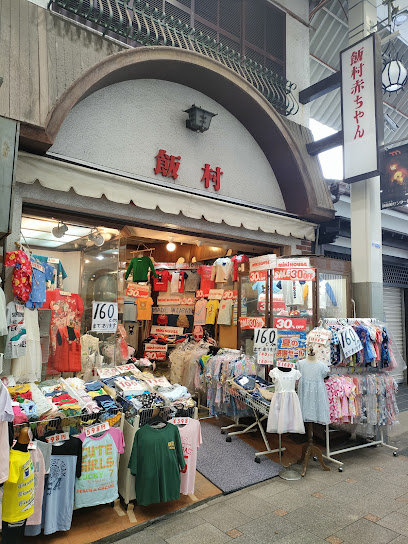
Network Gallery Nawrap
22.4 km
Explore the unique charm of Japanese home goods at Network Gallery Nawrap in Nara, a must-visit destination for tourists.
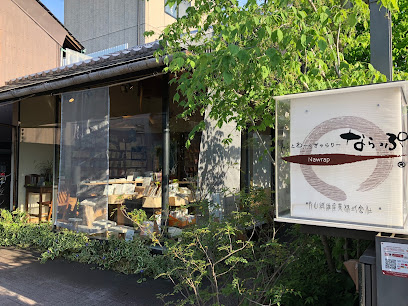
Ezuya
22.4 km
Explore Ezuya in Nara for authentic souvenirs and traditional crafts that embody the essence of Japanese culture.
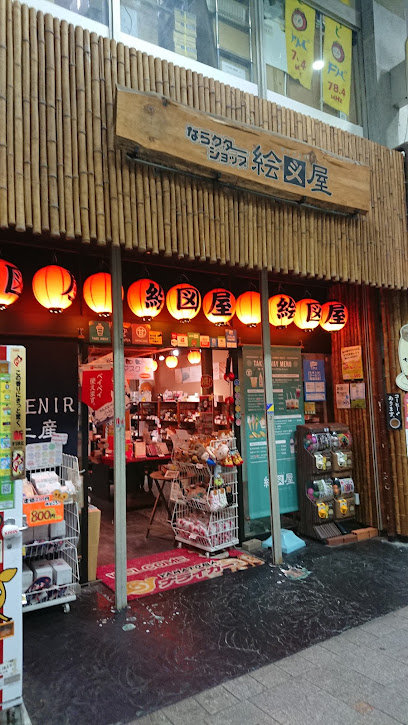
Mochiido Center Town
22.5 km
Experience the essence of Nara at Mochiido Center Town, a vibrant shopping mall blending modern retail and traditional charm.
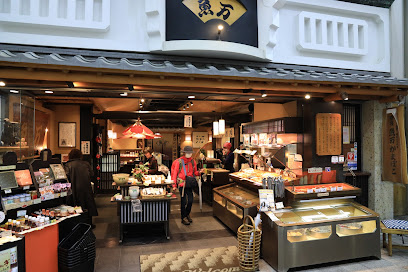
DAISO
22.5 km
Explore DAISO in Kawachinagano, Osaka – a treasure trove of affordable products and unique Japanese finds for every traveler.
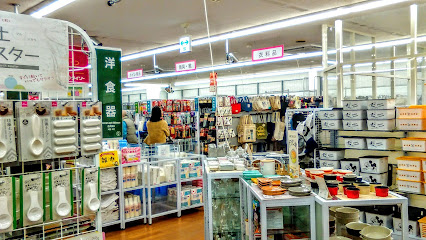
Vierra Nara
22.5 km
Explore the dynamic shopping experience at Vierra Nara, where modern retail meets traditional Japanese culture.
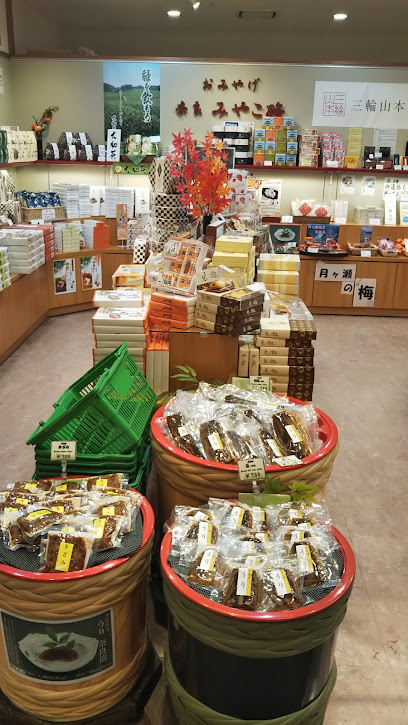
Spark
22.5 km
Discover unique home goods and furniture at Spark in Nara, where local craftsmanship meets modern design in an inviting shopping experience.
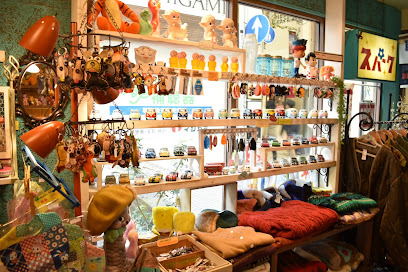
Essential bars & hidden hideouts
THE SAILING BAR
3.6 km
Experience Sakurai's vibrant nightlife at The Sailing Bar, where exquisite cuisine meets a charming nautical atmosphere.

Bar Sally / Sally's Curry
19.8 km
Discover the unique blend of bar culture and authentic Japanese curry at Bar Sally in Yamatokoriyama, Nara, for an unforgettable dining experience.

HAOH SURUGAMACHI
22.2 km
Discover the vibrant nightlife at HAOH SURUGAMACHI, Nara's premier bar and live music venue, where unforgettable experiences await.

BAR315.nara
22.3 km
Discover BAR315.nara: Where Modern Vibes Meet Traditional Japanese Hospitality in the Heart of Nara.

blue note Naramachi
22.3 km
Discover the heart of Nara's jazz scene at Blue Note Naramachi, where live music and a relaxed atmosphere await every visitor.

Salon des vins Sève
22.4 km
Discover the enchanting world of wines at Salon des Vins Sève, a cozy wine bar in Nara, Japan, perfect for relaxation and indulgence.
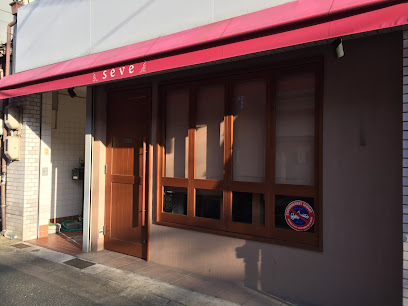
SK Music At Brazilian Bar
22.4 km
Discover the vibrant nightlife at SK Music at Brazilian Bar in Nara, where live music meets a cozy atmosphere for an unforgettable experience.

shishabar Re'bel
22.4 km
Discover the lively atmosphere and authentic Japanese barbecue at Shishabar Re'bel in Nara, a culinary gem for food enthusiasts.

Bar PIRATES
22.4 km
Discover the lively pirate-themed Bar PIRATES in Nara, where you can enjoy an extensive drink menu and vibrant nightlife in a unique atmosphere.

M's Bar
22.5 km
Discover M's Bar in Nara for an unforgettable evening of crafted cocktails and cozy ambiance amidst Japan's rich cultural heritage.

Savant
22.5 km
Discover Savant, Nara's top bar, offering exquisite cocktails and a vibrant atmosphere that reflects the best of Japanese hospitality.

バー フィディック
22.5 km
Experience the vibrant nightlife of Nara at Bar Fiddich, where exceptional drinks and a cozy atmosphere await you.

Music Bar Reciaffe
22.5 km
Discover the vibrant nightlife of Nara at Music Bar Reciaffe, where great music and a lively atmosphere await your arrival.

Light
22.5 km
Experience the lively atmosphere and local flavors at Light, a charming pub in the heart of Nara, Japan.
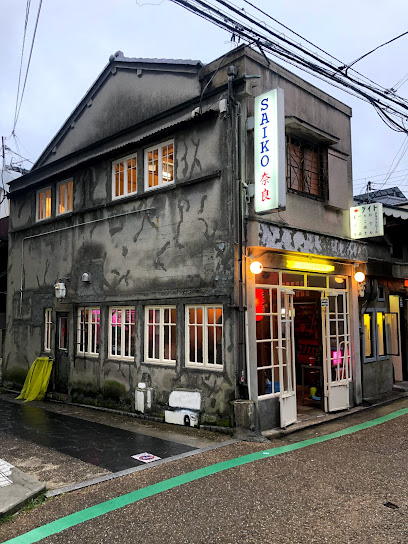
Old Time
22.6 km
Discover the charming Old Time bar in Nara, where tradition meets modernity in a cozy atmosphere, perfect for savoring local drinks.




